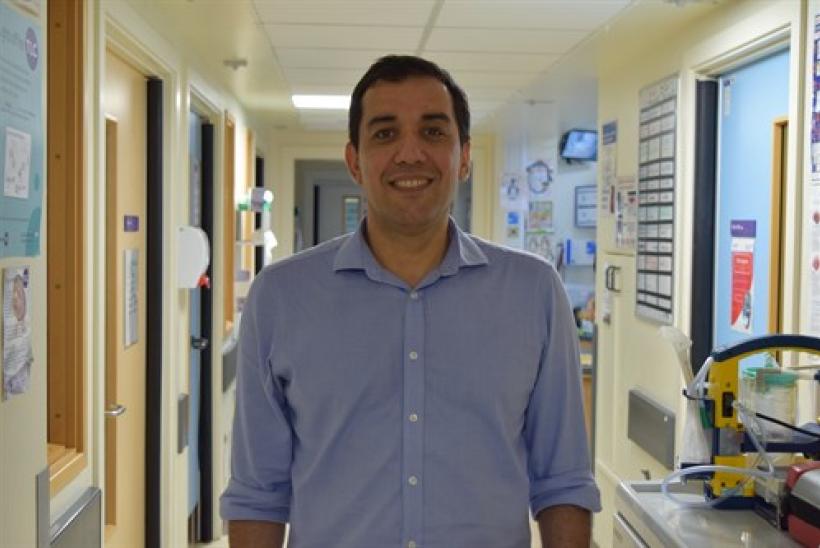World Arthritis Day: Parents should be aware that arthritis can affect children too, urges Paediatric Rheumatologist expert
This World Arthritis Day, Peadiatric Rheumatologist at Great Ormond Street Hospital (GOSH), Dr Muthana Al Obaidi, explains that there is a need for increased awareness about arthritis in children. Arthritis is a condition mostly known to affect adults but also affects 1 in every 1000 children and it affects children as young as one year and sometimes even younger. Arthritis in children is referred to as Juvenile Idiopathic Arthritis (JIA).
Arthritis is an autoimmune disease causing the inflammation of the joints, which presents itself with one or all joints being painful and swollen.
Dr Muthana Al Obaidi, Paediatric Rheumatologist and Principal Investigator in a collaborative international study in JIA at GOSH, highlighted there are different types of JIA, which can last from several months to several years. If left untreated the child can suffer from limping, pain, muscle wasting and length discrepancy. It can also affect the child’s mobility. “Every case is different as there are different types of JIA and symptoms vary between the different types. Knowing which type your child has will help choose the right treatment,” says Dr Al Obaidi.
“We still don’t completely understand what causes JIA, but what we do know is that JIA causes the body to attack itself causing inflammation in joints when it doesn’t need to” he adds.
Growing up with JIA can affect a child as it can have different effects on the body that vary from day to day. Dr Al Obaidi says that children can suffer from flare-ups, mood swings, sleep disruption, eye inflammations and it can even slow down their growth.
Parents need to be aware of the signs and symptoms that can present themselves early on in life. If your child stops walking or crawling then it can be due to a problem in the wrist, hands or lower limbs especially if accompanied by swollen joints and early morning stiffness. If your child exhibits any of the latter then it is best to seek the opinion of a paediatric rheumatologist.
GOSH’s rheumatology department receives around 1000 patients per year coming from the Middle East, USA, Europe, South Asia as well as the UK and has a rheumatology team that facilitates involving patients and their families in the management of the disease.
“The department at GOSH is special in that it deals with a wide range of conditions and has an active research activity with the academic department at the Institute of Child Health at University College London,” adds Dr Al Obaidi.
Speaking on the future research taking place in JIA, Dr Al Obaidi explains there are 27 active studies at the moment with a particular interest in JIA. Their major focus is to find a way to predict if a drug will work for an individual to avoid the patient having to go through a number of different treatments before finding a drug that works.


